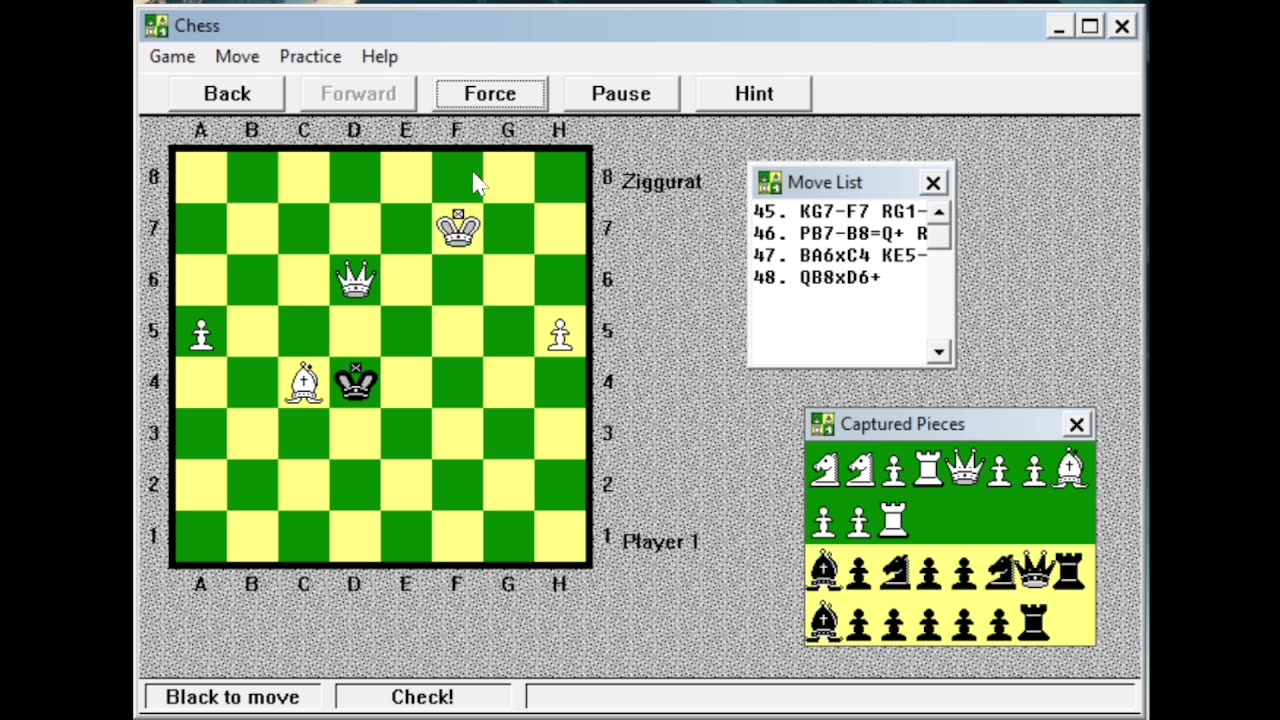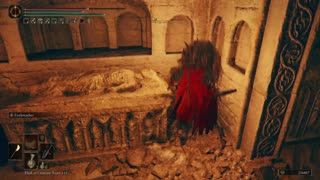Premium Only Content

Chess from Windows Entertainment Pack 4
The following are the rules, copied from Help - How to Play - Overview:
Chess is a captivating and charming game that has intrigued the human imagination since the beginning of time. On a simple board with a handful of pieces, kingdoms arise and tragically fall without the loss of a single drop of blood.
Welcome to this computerized portal into the world of Chess! For those of you already familiar with the game, you've just found yourself a new playing partner. For those who are just discovering it, this is a gateway into a game that transcends all others.
Origin of Chess
Tracing the history of chess is like tracing the history of humanity. Early roots of the game date back 2,500 years to ancient Hindustan. In 500 B.C. people were already creating imaginary worlds to rule, though early games were believed to have been guided by dice.
Over the next 1,000 years it evolved into a game similar to what we know today. By 500 A.D., a game called Chaturanga was making its way from India to Persia. Chaturanga, means the four parts of an army: chariots, elephants, horses, and foot soldiers. These are much like the present game's rooks, bishops, knights, and pawns. The word chess is derived from the Persian word shah, meaning king.
From Persia, Muslims taught the game to the Spanish, and from the Byzantines the game moved into Italy. Chess swept across Europe, especially embraced by royalty and the aristocracy, and along the way was transformed into the game we play today.
Origin of computer chess
Probably the most famous of the early chess machines was called "The Turk." Built in 1770 by Baron Von Kepelen, his apparatus, manipulated the board pieces with mechanical hands. The machine displayed unquestionable human intelligence and played chess remarkably well. How was human intelligence achieved in a machine nearly 200 years before the birth of the integrated circuit and the quest for artificial Intelligence? Hidden within the cabinetry of the machine sat a very small man, who was quite a fine player.
A more thoughtful effort was made by Charles Babbage (1792-1871), the English mathematician who looked at the punched-card controls of a Jacquard loom and decided that information could be woven together in a similar fashion. The logic he sketched out for how one of his "analytical engines" might play chess is found, at least in spirit, in many of the chess programs still being developed more than a century after his death.
The race for a machine able to play chess really kicked into gear in the late 1940s and early 1950s with the separate works of Claude Shannon, a scientist at Bell Labs, and Alan Turing in Great Britain. In both cases, the scientists wrote programs to control the decision trees that the computer needs to explore. When considering moves and possible counter moves for each piece on the board, a computer can get bogged down in a decision tree with billions of nodes.
A human Grand Master is able to eliminate all but the most relevant branches of the decision tree, and computer programmers dream of re-creating that ability in a machine. Some of the best minds in the field of artificial intelligence have been drawn into the race for a program that can beat the very best humans at the game. The day may come when the finest chess players in the world are machines. But long after that day comes and goes, chess will retain its special status as an uncommonly fascinating companion for the human mind.
Meet Ziggurat, your new chess partner
The analytical engine within this program is called Ziggurat. Ziggurat took its name from the soaring towers of old Asyrian temples. From the highest reaches of those towers, Ziggurat is journeying in search of students.
Ziggurat will help you improve your game by displaying board coordinates, highlighting your endangered pieces, listing all moves that have been made, allowing you to back up and reset the board to correct a mistake, saving games for later review, and selecting the level at which you would like Ziggurat to play. In addition, Ziggurat is ready to offer you a hint before every move.
-
 2:29
2:29
CodeQuest
10 days agoElden Ring DLC NG+1 | Knight of the Solitary Gaol solo #eldenringbosses #shadowoftheerdtree
81 -
 16:16
16:16
Robbi On The Record
12 days ago $20.22 earnedThe Dark History of Halloween | What You Should Know
59.7K49 -
 58:18
58:18
Flyover Conservatives
1 day agoThe Truth About Halloween that You DIDN’T Know - Holiday Special - Historian Bill Federer | FOC SPECIAL Show
45.2K4 -
 3:10:46
3:10:46
Ellie_roe
6 hours agoEllie and Errys Halloween Spooktacular || Random Horror Games
20.5K -
 50:27
50:27
Sarah Westall
8 hours agoBig Banks Caught Rigging Market, IMF tells World to “Buckle Up” w/ Andy Schectman
38.3K15 -
 13:54
13:54
Degenerate Jay
15 hours ago $1.15 earned5 Best Superhero Movies To Watch On Halloween
19.4K4 -
 59:03
59:03
NAG Podcast
8 hours agoSarah Fields: BOLDTALK W/Angela Belcamino
32.7K7 -
 1:21:41
1:21:41
Glenn Greenwald
10 hours agoGlenn Takes Your Questions: On the Argentina Bailout, Money in Politics, and More; Plus: Journalist Jasper Nathaniel on Brutality and Settler Attacks in the West Bank | SYSTEM UPDATE #541
87.6K46 -
 3:10:08
3:10:08
Barry Cunningham
7 hours agoPRESIDENT TRUMP TO USE NUCLEAR OPTION? FOOD STAMPS END! | SHUTDOWN DAY 31
52.7K38 -
 1:06:56
1:06:56
BonginoReport
15 hours agoThe Battle Between Good & Evil w/ Demonologist Rick Hansen - Hayley Caronia (Ep.168)
103K38